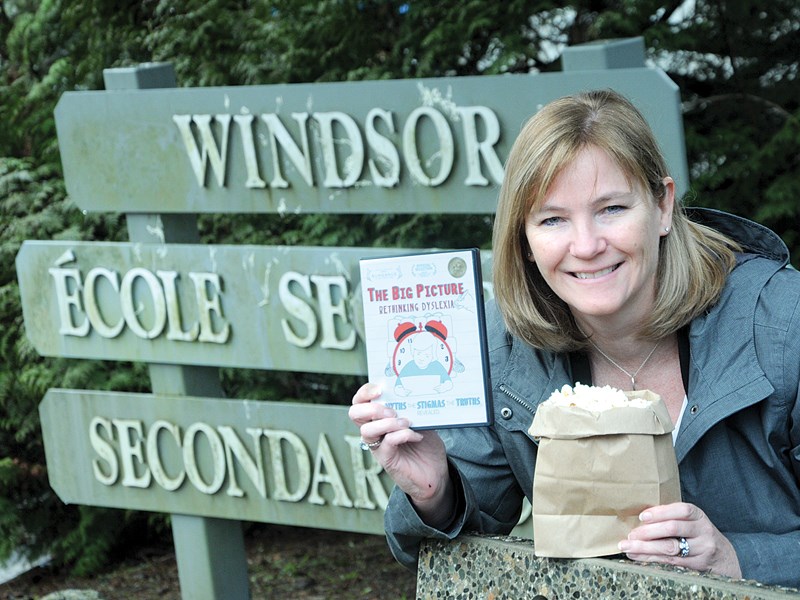Cathy McMillan didn’t know she was dyslexic.
In university she’d spot a diligent note-taker and offer to buy them an after-class beer in exchange for their notes.
“I always got the notes,” she recalls.
She knew her concentration suffered when she wrote during the lecture, but she didn’t suspect it was because of a learning disability.
After settling in Port Moody to raise a family, McMillan started to learn more about dyslexia – which often manifests in transposed letters – as she observed her very Canadian children.
“My son is left-handed, he plays hockey right-handed. My daughter is right-handed, she plays hockey left-handed,” she says.
It was while trying to get her children assessed that she learned she was also dyslexic – a topic which had never been broached in her childhood.
As the mother of two dyslexic children McMillan became the founding director of Decoding Dyslexia B.C.
“There just aren’t the resources to get a diagnosis within the public school system,” she says. “A lot of parents do go and pay for their own psycho-educational assessment.”
For many young children, dyslexia can lead to feelings of humiliation. The renowned architect Richard Rogers was once quoted as saying: “The one advantage of being dyslexic is that you are never tempted to look back and idealize your childhood.”
In an effort to assuage those feelings in other young people, McMillan is inviting parents and children to the movies.
She’s planning to screen the 2012 documentary The Big Picture: Rethinking Dyslexia, March 2 at École Windsor secondary.
Directed by James Redford and featuring Dylan Redford (the son and grandson of famed actor Robert), the movie covers Dylan’s efforts to get into college and includes reflections from many dyslexic people who flourish in a variety of fields.
The movie so moved McMillan she paid $300 for a public licence to show the 52-minute film three years ago. (She broke even after her first screening attracted 100 moviegoers who paid $3 apiece.)
She has since exhibited the movie in Kamloops and Victoria and has plans to organize a screening on Bowen Island in May.
“There needs to be more awareness about (dyslexia) because it just helps people be able to realize what they need to do to access services or get that tutoring help that they need so that they can be successful,” she says. “A lot of these kids don’t get flagged and don’t reach their potential.”
A University of Texas study in 2000 found approximately 80 per cent of the state’s prisoners were functionally illiterate.
By screening the movie, McMillan says she’s hoping audiences walk away with: “A better understanding about what dyslexia is and what it’s not.”
One of the door prizes includes Linda Siegel’s book Not Stupid, Not Lazy, Understanding Dyslexia and other Learning Disabilities.
McMillan wants to forge through the misconceptions that still surround the learning disorder.
“Allowing more people to understand (dyslexia) means that these kids will get help in schools quicker, hopefully, and help from their parents,” she says.
Dyslexics can be slower to establish a dominant hand, struggles with telling time and have trouble with pronunciation.
“They’ll be the kids that say ‘pasghetti’ instead of spaghetti,” McMillan explains.
Many people with dyslexia tend to be mechanically inclined or very artistic. Debbie Macomber, who recalls a teacher describing her dyslexia as“word blindness,” went on to become a best-selling author, despite still being a self-described “creative speller.”
While the Ministry of Education puts an emphasis on early assessment and intervention, McMillan advocates for dyslexia screening as early as kindergarten.
“These students need explicit evidence based instruction and they need to identified early. … (They’re) at risk for developing mental health issues, low self-esteem and not finishing school.”
The North Vancouver school district has two literacy centres for students who require “intensive support” for a learning disability related to reading or writing, stated school district spokeswoman Deneka Michaud.
The Big Picture is scheduled to screen March 2 at 6:30 p.m. at École Windsor.



